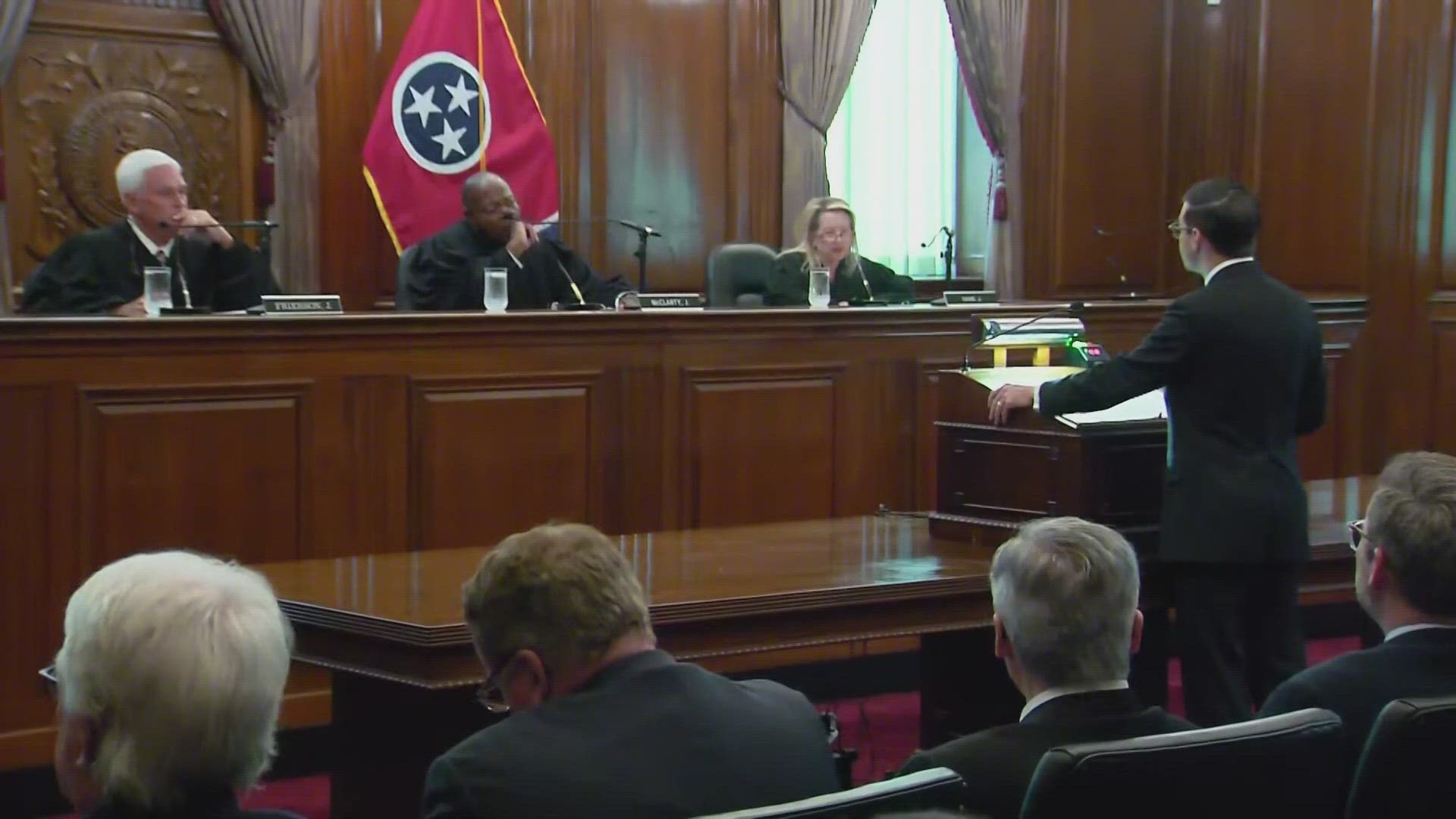NASHVILLE, Tenn. — A federal judge in Nashville ordered the Federal Bureau of Investigation to hand over documents to her for a private review in an ongoing Freedom of Information Act case that will decide if the public will see documents related to the Covenant School shooter's motives.
Judge Aleta Trauger issued the order on March 15 in the U.S. District Court in Middle Tennessee, according to court records.
The order is part of an ongoing FOIA battle between the FBI and a conservative news organization based out of Nashville. It's one of several lawsuits seeking to release documents on the shooting that could shed light on the shooter's motive.
On March 27, Audrey Hale shot and killed three young children and three adults at a private Christian school in Nashville. Hale was shot and killed by responding officers.
According to court filings reported by the Associated Press, Hale left behind at least 20 journals, a memoir and a suicide note. The Metro Nashville Police Department has not publically released the shooter's writings, but three handwritten pages were leaked and posted on social media in Nov. 2023. One of the pages appeared to have been written on the day of the shooting.
According to court records, a little less than a month after the shooting on April 20, 2023, two editors with The Star News Network submitted a FOIA request to the FBI asking for "Audrey Hale's Manifesto related to the Nashville Covenant School Shooting." The two later updated the request seeking copies of notes, journal entries, and other documents that law enforcement officials labeled as Hale's "manifesto," clarifying they sought documents that would "reveal the motivations of Audrey Hale."
The FBI responded five days later saying it was withholding all records covered under the FOIA request, claiming public release of the information would "reasonably be expected to interfere with enforcement proceedings."
The Star later sued for the records, and the FBI sought to dismiss the case. The FBI gave several reasons for its denial, including that the documents could jeopardize investigative and prosecutive efforts, reveal private information of people connected to the shooting, encourage copycats or reveal potential co-conspirators in ongoing investigations. The Star asserted that these reasons alone would not prevent the release of records under FOIA and that documents could still be released in a redacted form.
On March 15, 2024, Traguer concluded she did not have enough information to determine if the FBI's concerns were valid and ordered the agency to hand over documents to her that would potentially be covered under the Star's FOIA request for a private in-camera review.
“Although the FBI’s position may ultimately be well-founded, it has not supported that position with sufficient clarity or detail to permit the court to recognize the asserted exemptions at this time. The court also finds that the significant public interest in both the requested materials and the law enforcement objectives asserted by the FBI support in camera review and that no showing has been made that the requested materials will be so voluminous that they would pose a significant danger to judicial economy,” she said.
You can read the full order below:

